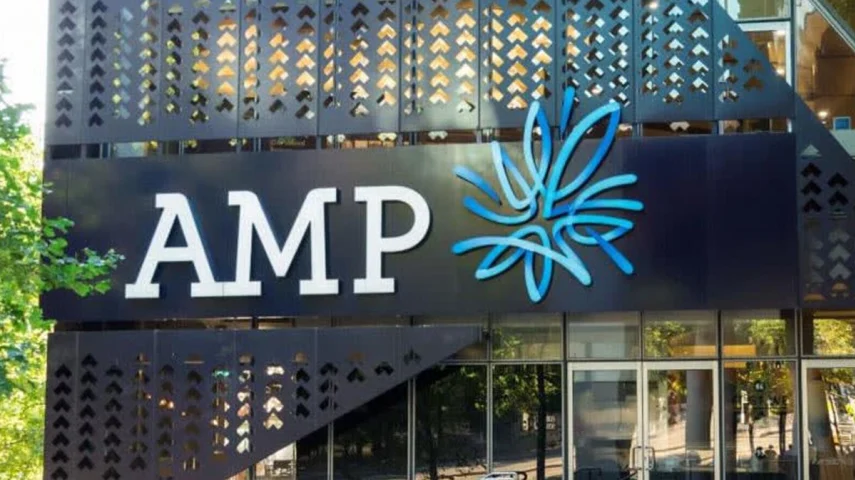AMP CEO sees incentives cut amid remuneration crackdown



AMP has cut its executive remuneration following shareholder pushback which sees chief executive Alexis George’s maximum-possible remuneration reduced by almost $1 million.
At its latest annual general (AGM) meeting on 11 April, independent chair Mike Hirst detailed the change in payments for its executives to ensure they remain aligned to the shareholder experience.
Shares in the firm are down by 4.7 per cent over one year to 14 April compared to losses of 0.3 per cent by the ASX 200.
The reviewed framework will “align with changes to AMP’s operating scale, investor expectations and market developments”, it said.
Hirst took over as chair last April from Debra Hazelton, who retired at last year’s AGM after four years, but had sat on the board as a non-executive director since July 2021 and sits on its remuneration committee.
Remuneration has been a topic of discussion for the firm in recent years after the firm suffered a first strike at its 2023 AGM when almost half of shareholders voted to reject that year’s remuneration report. While the reports were approved in the subsequent two years, the firm said an external review of the market has been carried out following sentiment expressed by its investors in the 2024 AGM season.
As a result of the findings, the committee opted to reduce the maximum short-term incentives.
Hirst said: “In 2024, the remuneration committee conducted an external review of market remuneration for the financial services sector.
“As a result, the committee agreed that it was appropriate to reduce the maximum short-term incentive for the CEO and executive team from 200 per cent of fixed remuneration, to 150 per cent from 1 January 2025. This reflects our simplified business and current market practice.
“We will continue to refine our approach to remuneration, ensuring that it is appropriate for the size of the business while remaining attractive to good talent.”
AMP will also reduce the number of performance assessment metrics from three to two which will occur by removing the compound average growth rate (CAGR) of AMP’s adjusted earnings per share metric and increasing the weighting of the total shareholder return (TSR) from 35 per cent to 70 per cent.
For chief executive Alexis George, the framework changes will see her long-term incentive remain unchanged at $1.7 million, but her short-term incentive will reduce from $3.4 million to $2.5 million.
Combined with her $1.7 million in fixed remuneration, this brings her total remuneration opportunity down from $6.8 million to $6 million, a reduction of 12 per cent.
During 2024, she received $3.3 million in total remuneration which was up 11 per cent from $2.9 million a year prior. The increase resulted from an additional $359,000 in long-term incentive awards vesting and higher short-term incentives than in the previous year.
Pay for AMP executive committee members consists of 25 per cent in fixed remuneration, 30 per cent in short-term incentive cash, 20 per cent in short-term incentive deferred share rights, and 25 per cent in long-term incentive performance rights.
The same percentage changes as George will also apply to chief financial officer Blair Vernon and group executive for AMP Bank, Sean O’Malley, while chief risk officer Nicola Rimmer-Hollyman will see her short-term opportunity reduced from 140 per cent to 105 per cent.
In the firm’s remuneration report within its 2024 full-year results, it said it had performance tested the 2022 long-term incentive plan and two tranches of George’s sign-on award granted in August 2021.
“The 2022 LTI plan met the performance criteria for relative total shareholder return. Consequently, the performance rights granted under this plan will vest on schedule. For the CEO’s sign-on award, the absolute TSR performance hurdle was satisfied for this tranche of the award, with all performance rights vesting.
“However, relative TSR did not meet the minimum hurdle resulting in all performance rights lapsing for this tranche of the award.”
The vote was carried for both the remuneration report and the approval of George’s long-term incentive for 2025.
Recommended for you
CoreData research has highlighted Australian financial advice practices are expanding beyond traditional financial advice and reinforcing the power of a professional network to build their service offering.
ASIC has suspended the Australian Financial Services Licence of a Melbourne-based financial advice firm.
South Australian financial advice firm Calder Wealth Management has announced a strategic partnership with a risk advice firm.
Australian pre-retirees are exhibiting heightened anxiety about their financial future and are seeking greater retirement certainty as a result, Challenger research has uncovered.















